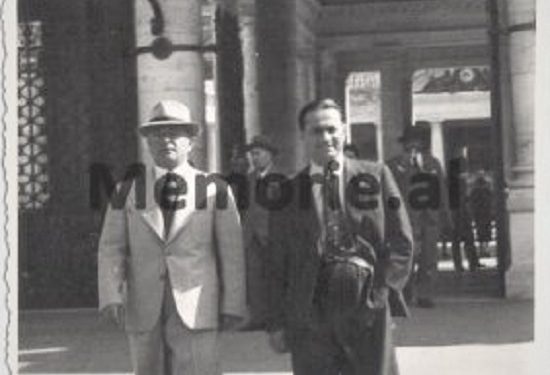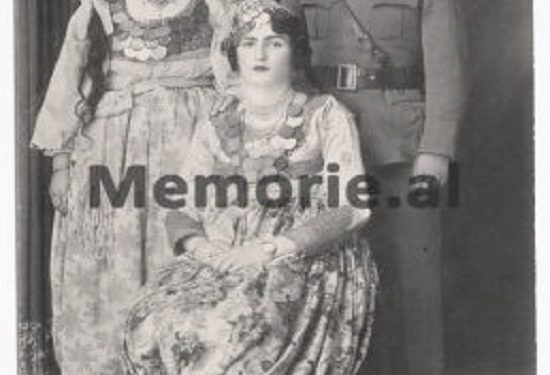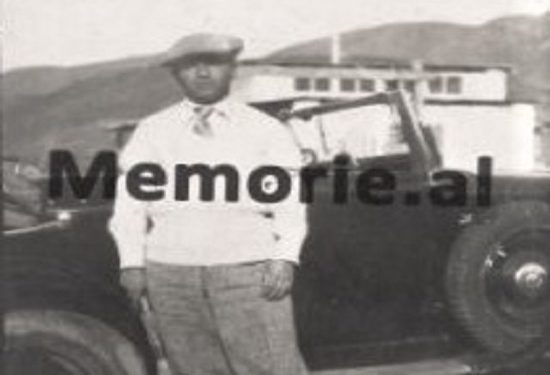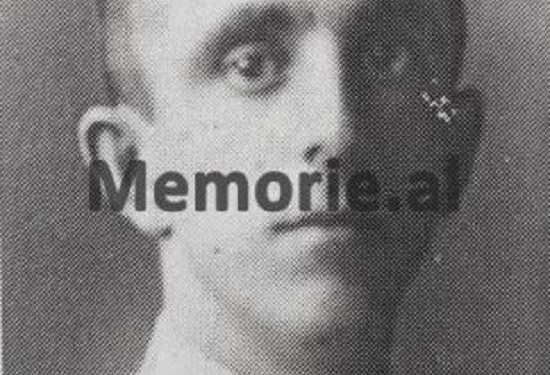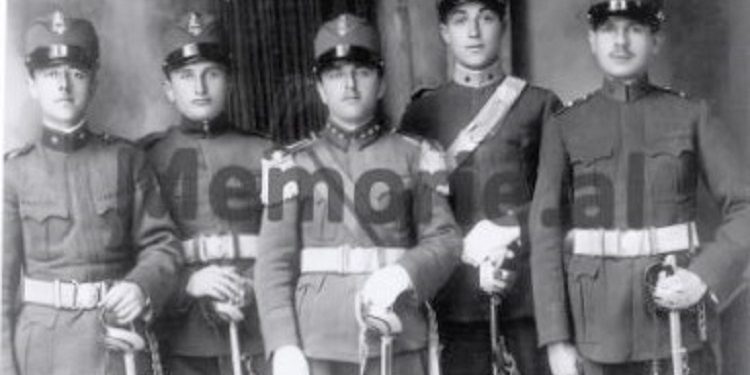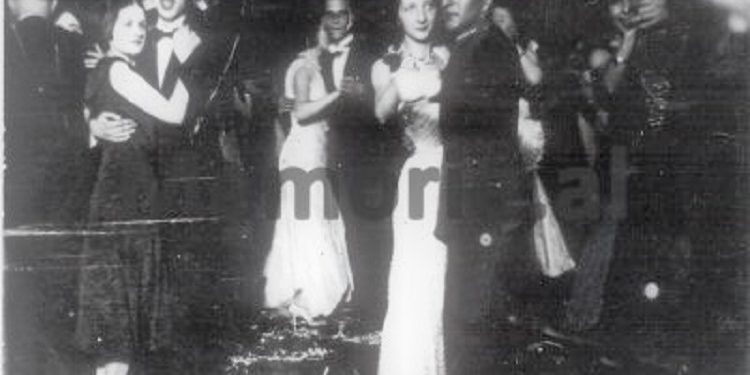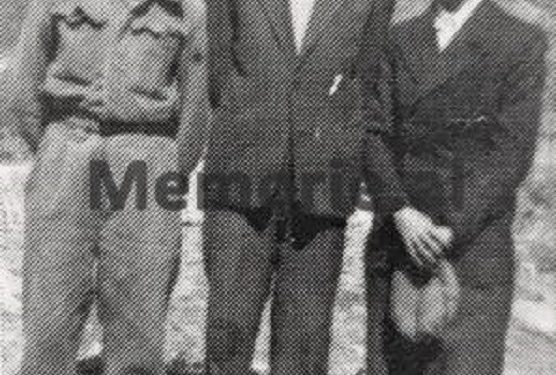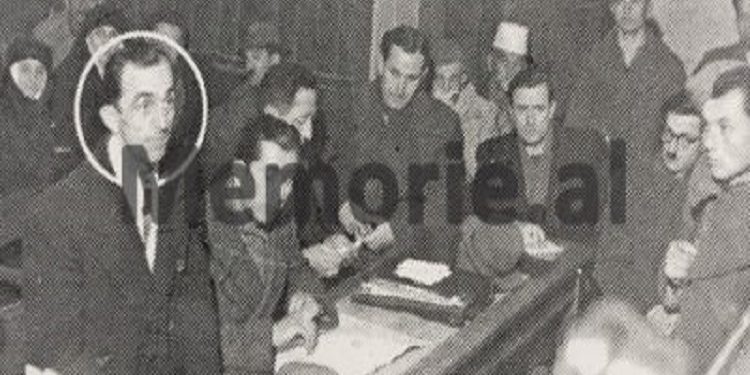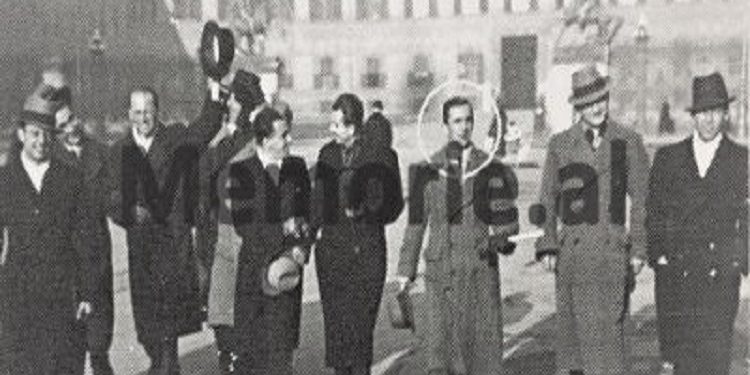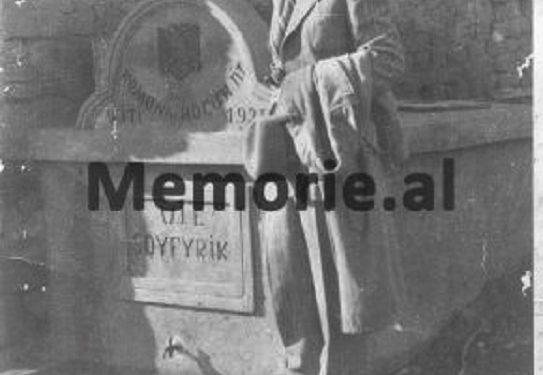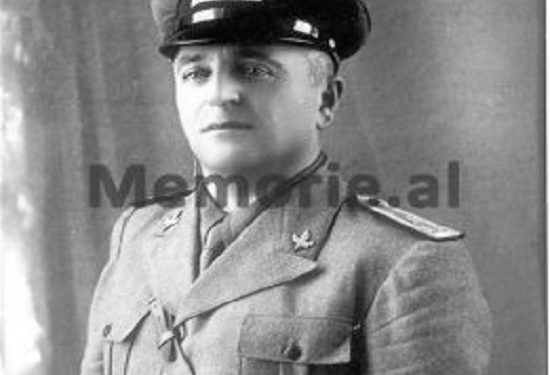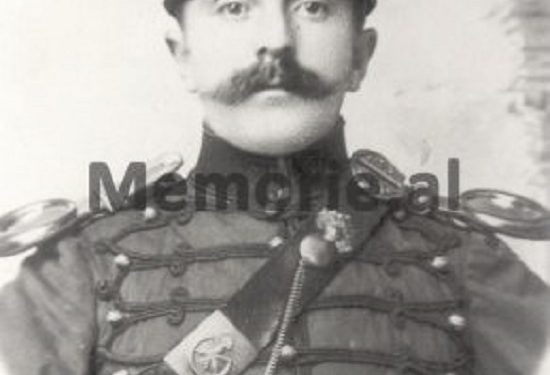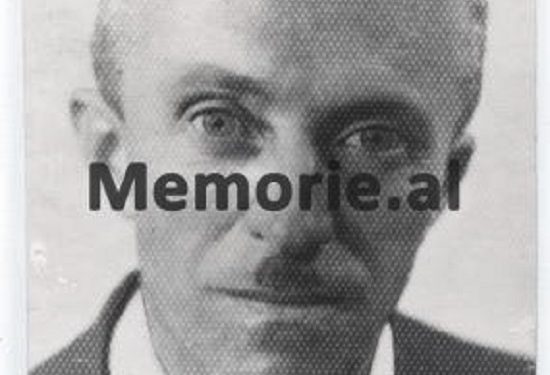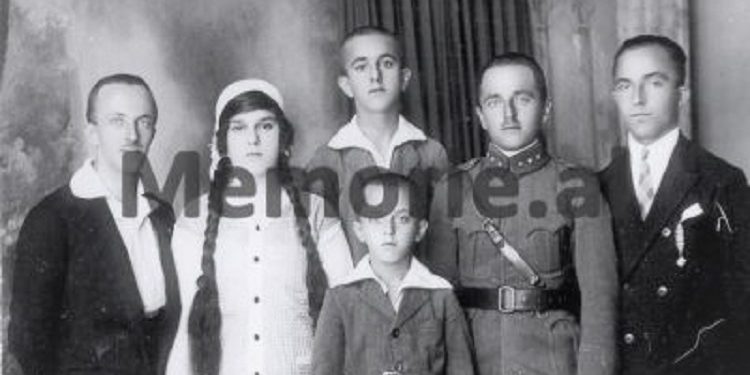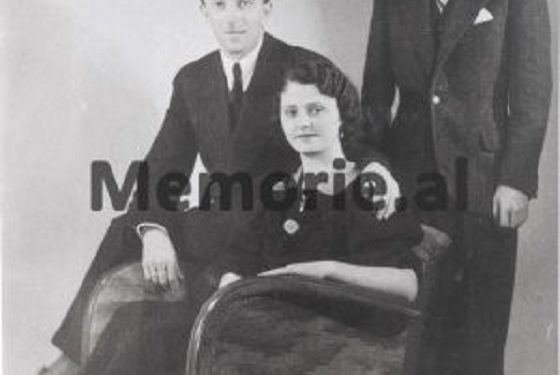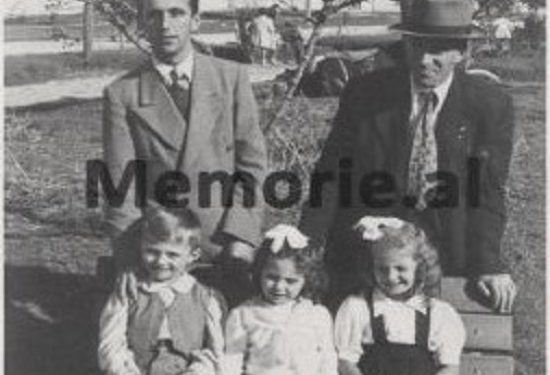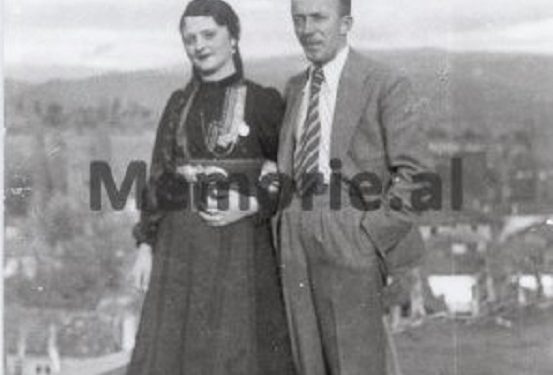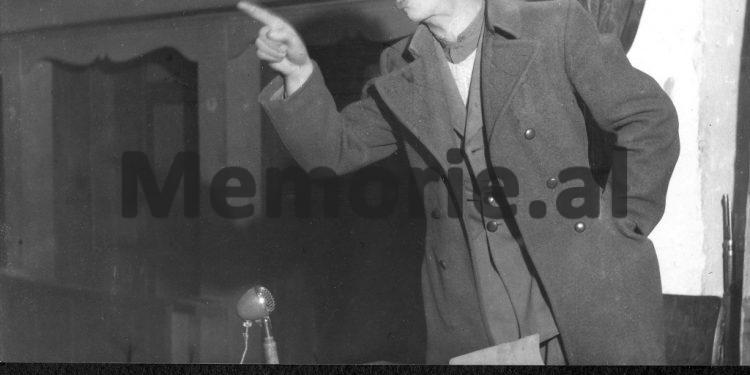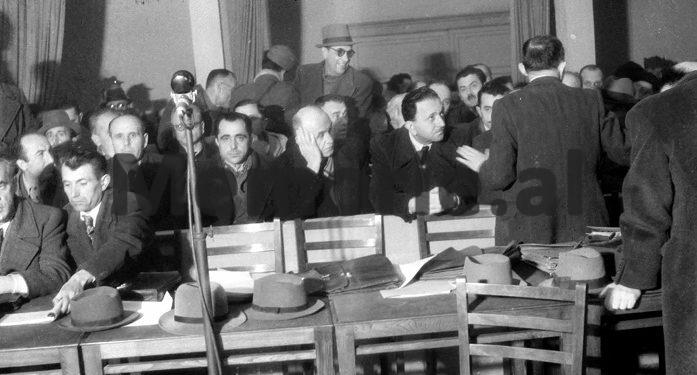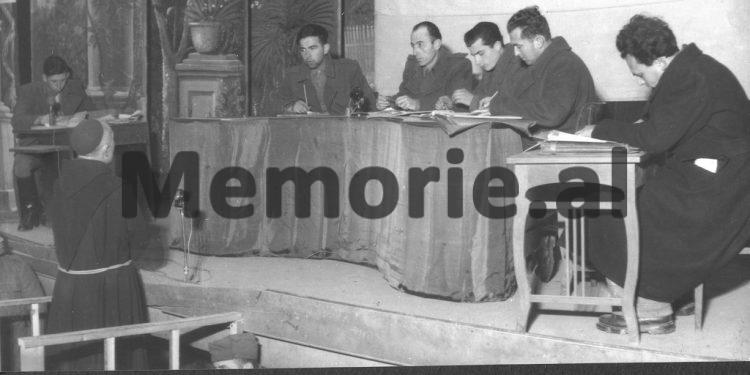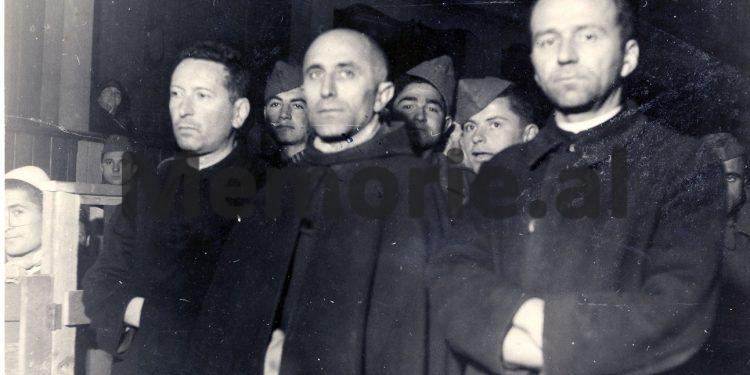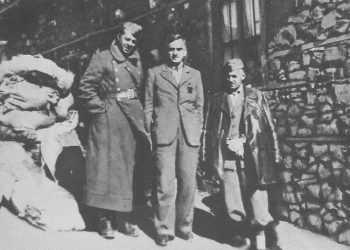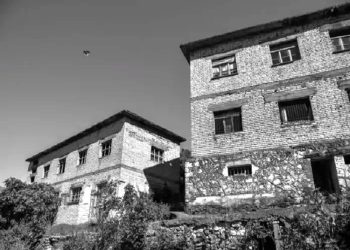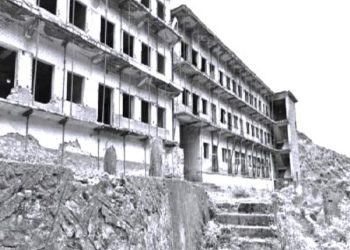Dashnor Kaloçi
Memorie.al publishes the unknown story of Sabri Quku, originally from the well-known Shkodra family, who in 1937 graduated with honors from the Faculty of Law of Turin, where he defended his scientific degree Doctor of Science, with a paper on the “Canon of Lekë Dukagjini” (“La Consuetudini Delle montagne albanesi nelle legislazione di Lek Dukagjini”), where it was evaluated with maximum points by the Italian professors of that university. Quk’s return home, where after obtaining a lawyer’s license, he first worked as an assistant to the well-known lawyer, Ferid Nepravishta in the city of Berat and then forced by the difficult economic situation, agreed to serve as Federal Federal Secretary in the city of Durrës, from where they removed him after a few months as an “undesirable element”. The work of Dr. Quku as an assistant peace judge in some districts of the country, such as Kruja, Ulcinj and Shkodra, where he ended the war, to come in 1946 where he agreed to defend as a lawyer, some of the clerics who were accused as the leaders of the secret organization “Albanian Union”, such as Dom Giovanni Fausti, Padre Daniel Dajani, Padre Gjon Shllaku, Dom Luigj Kçira, seminarians, Mark Çuni, Gjovalin Zezaj, etc., which became the reason that he to enter the “red circle” by the communist regime of Enver Hoxha, then ended up interned in the villages of Myzeqe and Vlora, doing the hardest work in agriculture.
It was 1937, when Sabri Qoku, an Albanian student from the city of Shkodra who was studying at the Royal University of Turin, defended his doctorate with a scientific paper on the legal profile of Lek Dukagjini’s Kanun, which he had collected and published years ago. first the priest Father Shtjefën Gjeçovi.
Who was Sabri Quku and from which family did he come from? What was his work on the Kanun of Lek Dukagjini and the assessment he made of it by the Italian professors of the University of Turin and the Albanian ones after the Albanian translation by the researcher Ardian Doka? Why did he agree to defend the leaders of the anti-communist organization “Albanian Union”, the clerics Giovanni Fausti, Daniel Dajani, Gjon Shllaku, Luigj Kçira, etc.?
Sabriu and the Quku family?
Sabri Quku was born in the city of Shkodra in 1915, in one of the well-known families of that city, who lived in the Rus Vogël neighborhood. That house in the ancient city and with the traditions of Shkodra, was known more as a family of intellectuals and one of them was Faik Quku (Sabri’s older brother), who after graduating from the Military Academy in Modena, Italy, returned to Albania and that in April 1939, after the fascist aggression against Albania, together with Mit’hat Frashëri, Hasan Dosti, Thoma Orollogain and Fuat Dibra (Xhaferri), they created a secret organization that aimed to organize anti-fascist resistance against the invaders. Italian. (That organization, in 1942, was legally declared “Balli Kombëtar”). Like many of the suckers of that family who were educated in various European universities, Sabriu, after his first lessons in his hometown and high school graduation in Tirana in 1933, won a scholarship to study at the Faculty of Law, University of Turin, Italy. The idea to continue his studies at that university, Sabriu was born in 1931, when he managed to finish the first two years in one of the colleges of Turin, to then return to Tirana where he finished the last two years of high school. During his four years of study at the Faculty of Law in Turin, Sabriu was one of the best students, which is confirmed by the grade booklets which are still kept in his family.
Doctoral Defense in Turin
After graduating in 1937, Sabriu decided to choose the major work of Albanian customary law “Kanun Lek Dukagjini” for the defense of his diploma, which was collected and published years ago by the Franciscan clergyman, Father Shtjefën Gjeçovi. Sabriu announced his idea to defend his diploma with that work a few months ago in front of one of his Italian professors, prof. Eugenio Florian, who not only welcomed the choice made by the Albanian student but also encouraged him by approaching his support as a scientific leader in the defense of the diploma. After that, Sabriu began to study the work “Kanun Lekë Dukagjinit”, extracting its values and legal profile and then selected the numerous materials of foreign and Albanian authors, who in their studies referred to it. otherwise known as ‘Albanian customary law’. Sabriu titled his work “La Consuetudini delle montagne albanesi nelle legislazione di Lek Dukagjini” (Albanian Mountain Docks in the Kanun of Lek Dukagjini), a work which was treated in 52 typed pages. After completing his studies, Sabriu presented him with the diploma defense commission of the Faculty of Law, which made his assessment by giving him the maximum points (one hundred and ten) and the recognition of the doctorate in Law. In the decision of that commission registered with No. 5332, dated 16.02.1938 it is written:
In the name of his Majesty Victor Emmanuel III.
For the sake of God and the will of the Nation, the King of Italy and Emperor of Ethiopia.
We professors Azze Azzi, Rector of the Royal University of Turin.
As we saw the truths of the studies conducted by Mr. Quku Sabri, the son of Shaqiri, born in Shkodra on November 15, 1915.
As we saw the result of the general examinations conducted by him at this University on September 18, 1937, in the one hundred and tenth vetting:
We confirm the Doctor’s Law in Jurisprudence.
Released in Turin on December 15, 1937, by:
Administrative Director Paule Gerule
Rector Azze Azzi,
Faculty President, Cailio Gress
After defending his doctorate. Sabriu received a greeting letter from the Consul General of Albania in Rome, who wrote, among other things:
“Dear Dr. Quku, I am pleased with the opportunity given to you to tell you how happy I felt as an Albanian Consul when I heard the praise that the academic body attributed to your student past, as well as to the patriotic spirit that permeated your entire diploma thesis…
In fact, you have crowned your studies with merit and I am very pleased to tell you that during the past four years in the large family of Albanian students in Turin, following in the footsteps of your brother Taro, you have always been an example of behavior. good in all reports”.
Return to Albania
After graduating with a doctorate in law from the University of Turin, Sabriu returned to Albania, thinking of serving in the judiciary. After being unemployed for a long time, he was able to stabilize as an assistant to the well-known lawyer, Ferid Nepravishta, who was active in the district of Berat. This period also served him to complete the internship that the new graduates had to complete before they were allowed to practice law. After that, around 1939, Sabriu was given a license to practice law and took part in a competition of the Ministry of Justice, where he won the right to work as an assistant judge in the Libohova court. But this was not possible due to the fascist occupation of Albania. In June 1939, in a deplorable economic situation, he accepted, outside his political convictions, the post of Federal Secretary in the city of Durrës, where he worked until February 1940. His removal from office was made because he was described as an “undesirable element” by the fascist regime, as he had openly declared himself an anti-fascist. After leaving this position, he was able to be arranged as an assistant judge in Shkodra, where after three months he was transferred to the city of Kruja, to be returned to Shkodra. At the beginning of 1941, Sabri was transferred to the city of Ulcinj. as a conciliatory assistant judge, where he worked for more than two years, and in 1943 he returned to Shkodra, where he worked as a member of the Shkodra Court until the end of the war in 1944.
Advocate of anti-communist clerics
After the end of the war, Sabriu left his hometown of Shkodra and came to Tirana, where he practiced law for some time. He was forced to return to Shkodra after, in 1946, he decided to defend as a lawyer a group of Catholic clergymen accused of forming the “Albanian Union” organization. The group of defendants included: Dom Giovanni Fausti, Father Daniel Dajani, Father Gjon Shllaku, Dom Luigj Kçira, seminarians, Mark Çuni, Gjovalin Zezaj, etc. Regarding this trial, Gjovalin Zezaj, one of the defendants, testified, among others: “Padre Gjon Shllaku, Dom Luigj Kçira and I had a defense lawyer, Myzafer Pipë, who during the Special Court that took place in March 1945 in Tirana against the so-called “war criminals”, had defended some of the defendants in that trial. In one of those hearings, Pipa told Koçi Xoxe and Bedri Spahiu that they were not worthy to convict the defendants, as they did not even have the minimum education to participate in that trial panel, because there were only a few tinsmiths. Sadly our desire to protect Pipa was not fulfilled, as he was allegedly arrested as implicated in our group. He was replaced by lawyer Sabri Quku, a good and competent man, who tried hard to provide excellent protection to his client, Padre Gjon Shllaku, demanding that the court acquit him and release him. his from the courtroom for lack of evidence. But Quku also received the same insults in the courtroom as well as lawyer Kole Dhimitri. After that, the military tribunal did not take into account his request for the release of the three clerics, although they themselves were convinced of their innocence. Regarding the developments of this trial, Dom Luigj Kçira testified: In January 1946, a military trial was held with Lieutenant General Mustafa Elmazi and Prosecutor Captain Aranit Çela, against the anti-communist organization “Albanian Union”, in which I was part. and I. In those court hearings, I had as a defense lawyer Mr. Sabri Quku, who tried with all his professional and legal skills to alleviate the accusation against us”.
In internment camps
After defending himself as a lawyer, which Sabri Quku did to the anti-communist Catholic clergy of the “Albanian Union” organization, he was considered undesirable by the communist regime, based on the position of his brother, Faik, a high exponent of the National Front, who had fled. from Albania in November 1944 together with Mit’hat Frashëri and other senior exponents of that nationalist organization and thus the communist regime in power had put him on the list of “war criminals”. Given this, in 1947, when the reorganization of the advocacy system took place, Sabri was not given the right to practice law. After that, he was able to get a job at the Social Security Administration in Shkodra, where he worked until 1948. He was then fired and forced to work as an accountant in Lezha and then as a secretary in the Shkodra Bar Association until 1954. In the same year, he was fired for political reasons. interned for 6 years in the camps of Shtyllas in Fier, Kuçi in Vlora, and Gradishta in Lushnje. In these camps he worked in the most difficult jobs in agriculture, not having the opportunity to write a single line of study he had begun in connection with the Jurisprudence, in which he had received his doctorate in Turin, Italy in 1937. During that period. while he was interned in those villages, he became more associated with Hamdi Bushati, a descendant of the famous Bushatllinjë family, who was considered one of the lords of that ancient city, to whom he devoted his voluminous study-historical work with some volume, “Shkodra and the seasons”. Sabriu was released from exile on April 2, 1960, and after some time without work, he began working as a lawyer in the town of Rrëshen, where he worked until 1966 when the communist regime suppressed the Advocacy Service in Albania. Sabri Quku passed away in 1981, at the age of 66, in the hospital of Puka, while he had gone to his son Agroni, who worked as a teacher in remote villages, described by the regime as the sucker of a reactionary family.
Evaluation of the study
It was only after the 1990s that Sabri Quku’s study of the “Kanun of Lekë Dukagjini”, on which he had defended his doctorate in Turin, was able to see the light of day. This was made possible thanks to the kindness of the researcher and pedagogue Ardian Doka, who translated it from Italian and published it as a book. Regarding this work of Quku, the researcher Doka wrote, among other things: “The docks of the Albanian mountains in the Kanun of Lekë Dukagjini, represent an approach to the base and legal value of this canon”. As the author himself claims, at the beginning of the study he relied on the canon collected by Gjeçov, but there are also personal contributions, such as those related to the canon Xhibal, which according to the author always represents a deviation, even partial from it. which Quku calls the original canon. Knowing that one of the most attacked aspects of the canon was blood feuds, the author tries to justify its existence, excluding any connection between it and the Albanian gene. So for Quku, blood feuds have been favored by external circumstances, which are foreign to the spiritual constitution of Albanians. Regarding this fact, he states: “Albanians are not a savage people by nature.” Some other Albanian professors have also stopped and given their assessments on Sabri Quku’s study. One of them is Dr. Mark Tirta, who wrote, among other things: “Lawyer Sabri Quku was one of those very distinguished students, who graduated at a very high level, internationally in the prominent universities of Europe. The topic of his diploma is a valuable proof of the zeal and seriousness with which Albanians have always entered the knowledge of scientific research to bring to light the values of their own national culture “./Memorie.al




